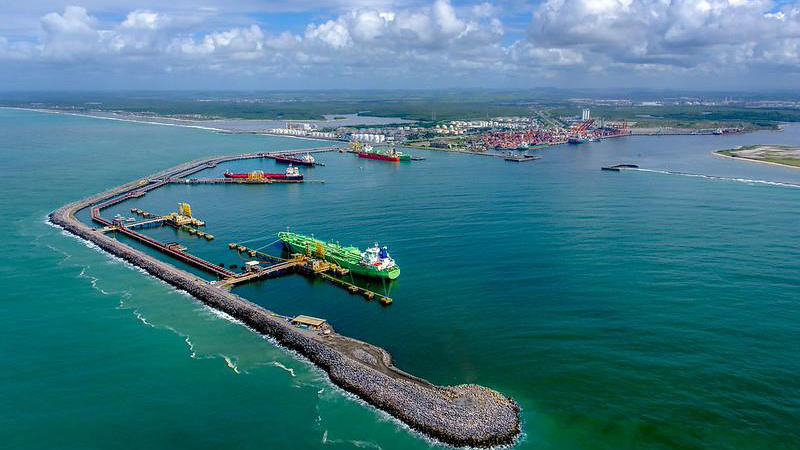Suape Industrial Port Complex is one of Brazil's biggest economic development projects. The area currently hosts over 80 operational companies, generating more than 20,000 jobs across 12 development hubs. Projections estimate that by 2030, the complex will create over 40,000 direct and indirect jobs, with investments totalling R$ 23.66 billion.
Currently, most of the port’s economic activities are focused on oil. To attract major national and international investors in other promising areas further downstream, UNCTAD, in collaboration with the Port of Suape and the National Service for Industrial Training in Pernambuco (SENAI/PE), launched a study on economic complexity centred in the Suape area. This is the first time such a study has been applied to a port-industrial complex. It aims to identify sectors and products that align with Suape’s existing production chains, increase diversification, add value, and boost exports, especially in non-oil and gas-related industries.
By capitalizing on identified opportunities, Suape could reduce its share of commodity exports.
Objectives
The objective of the project is to employ the economic complexity methodology as a strategic tool to identify and explore new investment opportunities in the Suape Industrial Port Complex. By attracting national and international investments, the project aims to develop new routes and markets that diversify Suape’s economic activities further downstream, reducing its reliance on primary commodities and expanding into more complex, value-added sectors.
Activities
The study proposes a range of activities, including mapping the industries' potential, identifying sectors and more complex products complementary to the existing productive chain in the territory, attracting international investments, and identifying possible international routes and markets.
Research Stages:
- Field data collection: This stage will involve research covering all relevant aspects of Suape, including mapping existing and emerging industries, identifying current activities, their growth potential, and interconnections with other areas of the economy.
- Data analysis: Based on the collected data, the economic complexity methodology will be applied. The aim is to understand the underlying dynamics driving economic development -- identifying areas of strength and opportunity in higher-value-added sectors that can be leveraged to attract new investments.
- Investment strategy: Using the findings from the data analysis, tailored strategies to attract national and international investors will be developed. The focus will be on creating an investment-friendly environment, promoting the diversification of the local economy, and generating quality jobs.
Expected Results
The study will provide companies already established in Suape with an in-depth understanding of the opportunities for innovation and expansion in their production chains. This will include improvements to existing processes and the identification of new international markets for their products and services.
For Suape, we expect the study to provide insights on how to attract complementary businesses that further strengthen local production chains. In addition, we seek to optimize Suape’s industrial development capacity by moving away from primary commodities towards a more diversified industrial base. Developing more complex products would help reduce the prominence of primary commodities in Suape’s operations, aligning its growth with principles of sustainability and innovation.
UNCTAD plans to take this experience of the project on economic complexity in Pernambuco and share it with other commodity-dependent developing countries to help them diversify their economies.
Delivery of Results
Upon completion of the study, the Suape Industrial Complex will receive a comprehensive document with detailed analyses and strategic recommendations for the economic development of the region. In addition, participating companies will receive a personalized report, containing a specific view for each company, with confidential information protected.
Link to the SDGs
- Goal 8 - Promote sustained, inclusive and sustainable economic growth, full and productive employment and decent work for all
- Goal 9 - Build resilient infrastructure, promote inclusive and sustainable industrialization and foster innovation

